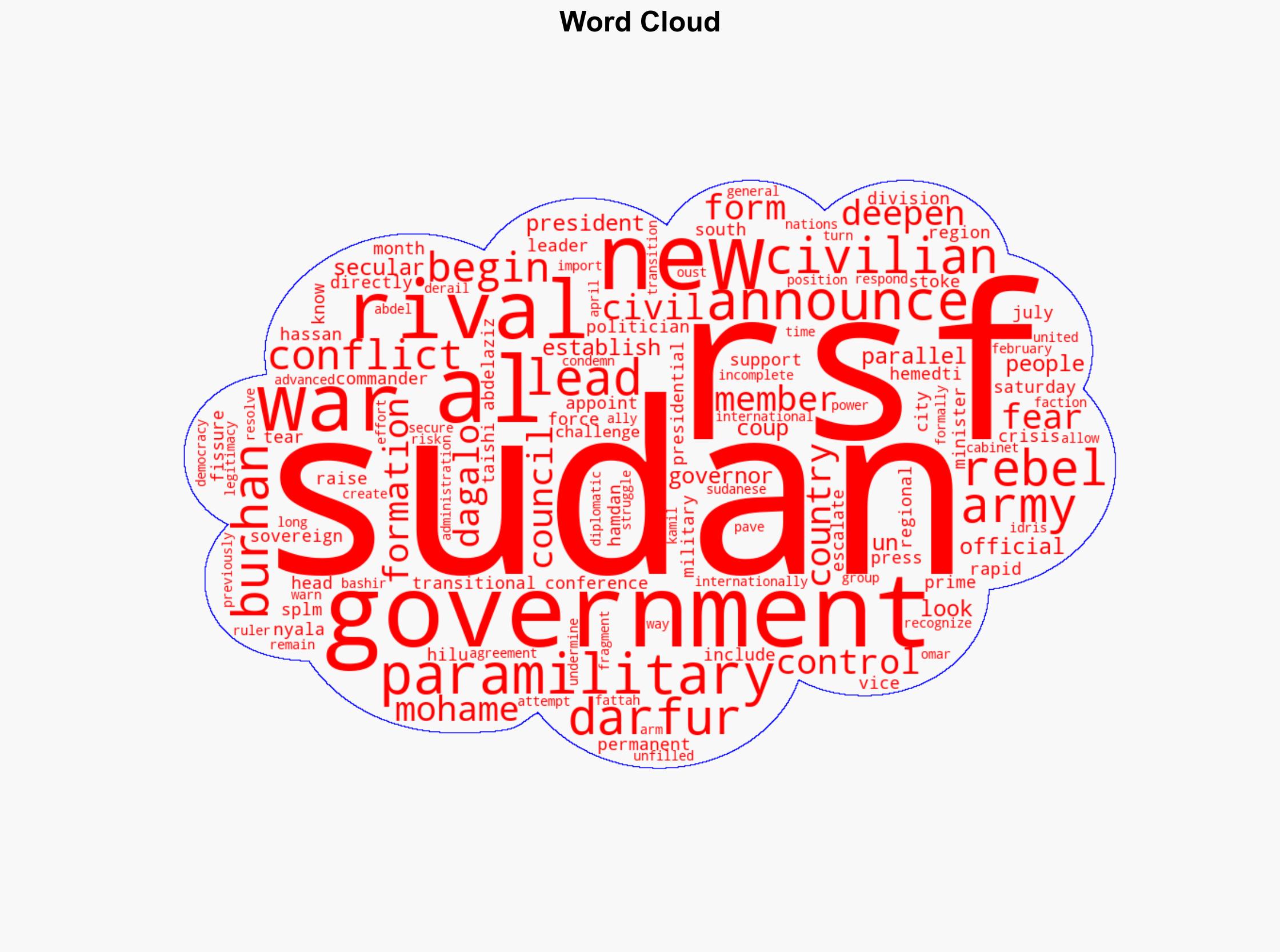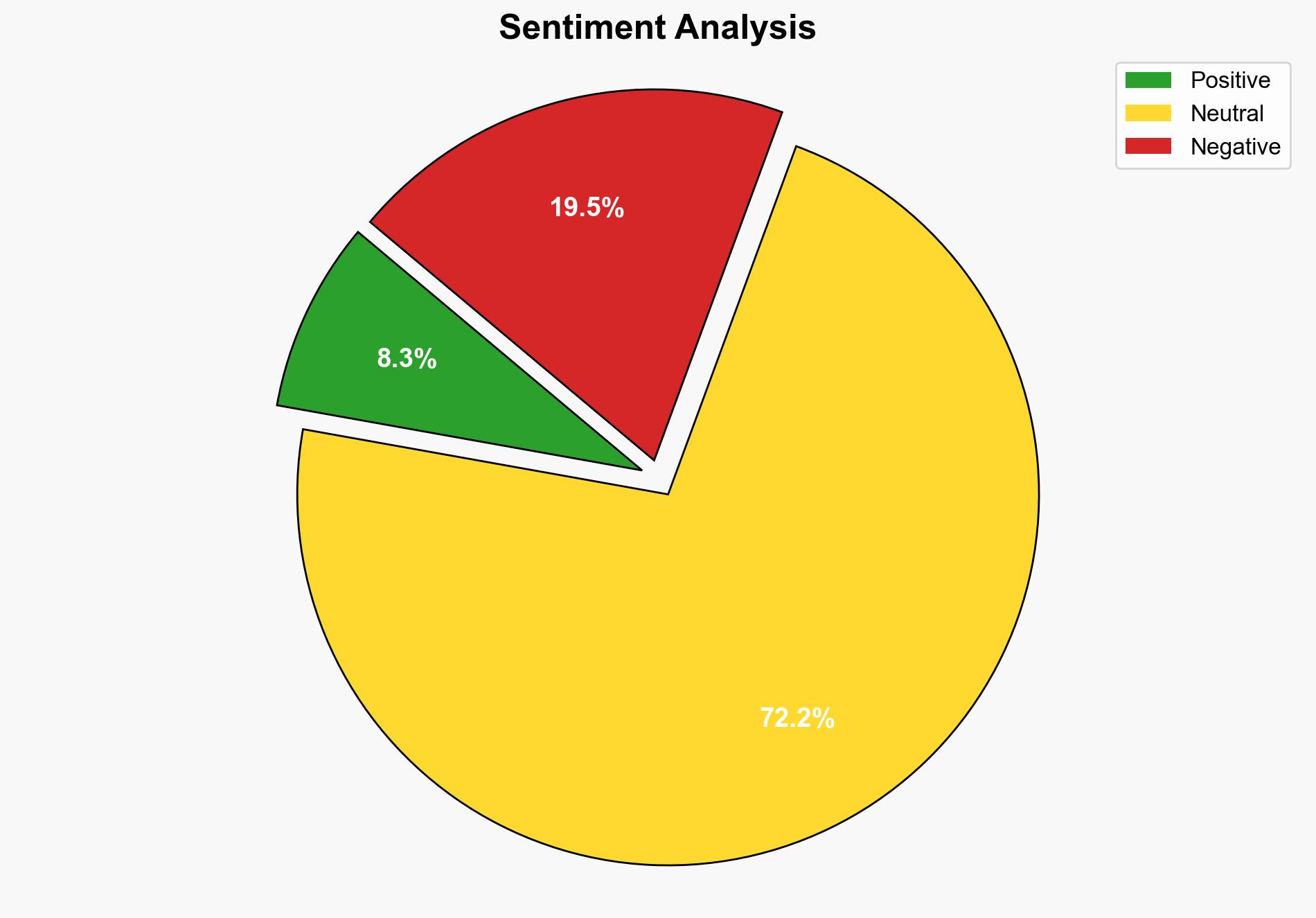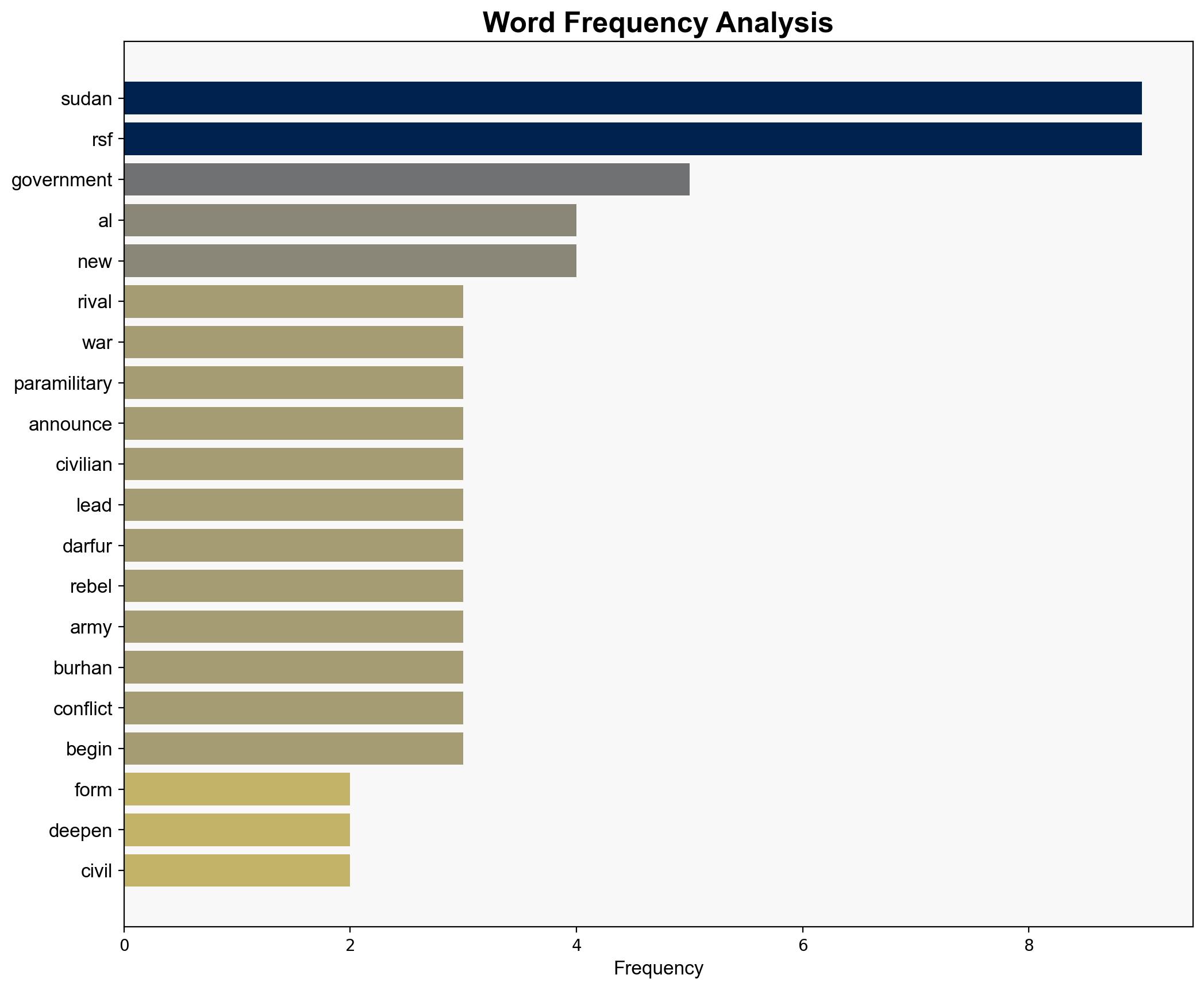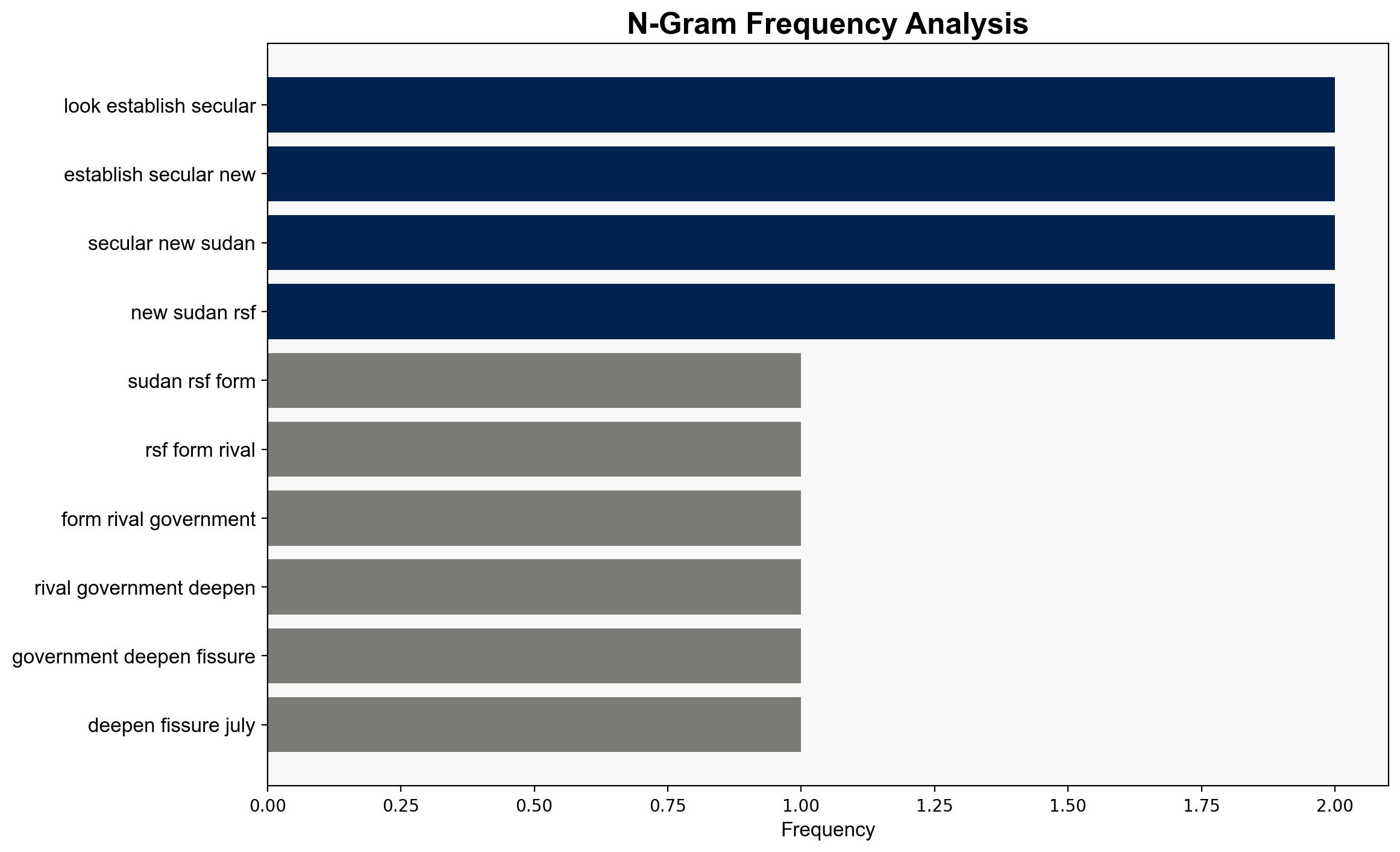Sudan RSF forms rival government deepening fissure – DW (English)
Published on: 2025-07-27
Intelligence Report: Sudan RSF forms rival government deepening fissure – DW (English)
1. BLUF (Bottom Line Up Front)
The formation of a rival government by the Rapid Support Forces (RSF) in Sudan significantly escalates the risk of prolonged conflict and potential fragmentation of the state. The most supported hypothesis suggests this move is a strategic attempt by the RSF to gain international legitimacy and leverage in negotiations. Confidence level: Moderate. Recommended action: Increase diplomatic engagement to mediate between factions and prevent further destabilization.
2. Competing Hypotheses
1. **Hypothesis A**: The RSF’s formation of a rival government is a strategic maneuver to gain international legitimacy and leverage in negotiations with the Sudanese army and international actors. This hypothesis is supported by the RSF’s attempt to establish a civilian-led government and appoint key figures, suggesting a bid for recognition.
2. **Hypothesis B**: The RSF’s actions are primarily driven by internal power consolidation, aiming to establish control over Sudan’s resources and territory, particularly in Darfur and Kordofan. This hypothesis is supported by the RSF’s control over these regions and the appointment of regional governors.
Using ACH 2.0, Hypothesis A is better supported due to the RSF’s explicit formation of a civilian-led government, which aligns with international norms for legitimacy, whereas Hypothesis B lacks direct evidence of resource-driven motives.
3. Key Assumptions and Red Flags
– **Assumptions**: Hypothesis A assumes the RSF’s primary goal is international recognition, not solely territorial control. Hypothesis B assumes the RSF’s actions are primarily resource-driven.
– **Red Flags**: The lack of a formal response from the Sudanese army and the incomplete cabinet positions in the RSF’s government raise questions about the stability and viability of this new administration.
– **Blind Spots**: Potential external support for the RSF, either from regional actors or non-state entities, is not addressed in the intelligence.
4. Implications and Strategic Risks
The establishment of a rival government could lead to:
– **Prolonged Civil Conflict**: Increased violence and instability, with potential for a full-scale civil war.
– **Regional Destabilization**: Spillover effects into neighboring countries, exacerbating regional tensions.
– **Humanitarian Crisis**: Further displacement and famine risks, worsening the humanitarian situation.
– **International Intervention**: Potential for increased foreign involvement, either through diplomatic or military means.
5. Recommendations and Outlook
- Engage in multilateral diplomatic efforts to mediate between the RSF and the Sudanese army, leveraging international organizations to facilitate dialogue.
- Monitor for signs of external support to the RSF, which could alter the balance of power and escalate the conflict.
- Scenario Projections:
- **Best Case**: Successful negotiations lead to a power-sharing agreement and stabilization.
- **Worst Case**: Full-scale civil war with regional spillover and humanitarian catastrophe.
- **Most Likely**: Continued low-intensity conflict with intermittent negotiations.
6. Key Individuals and Entities
– Mohamed Hamdan Dagalo (Hemedti)
– Abdelaziz al-Hilu
– Mohamed Hassan al-Taishi
– Abdel Fattah al-Burhan
– Kamil Idris
7. Thematic Tags
national security threats, regional focus, conflict resolution, humanitarian crisis




